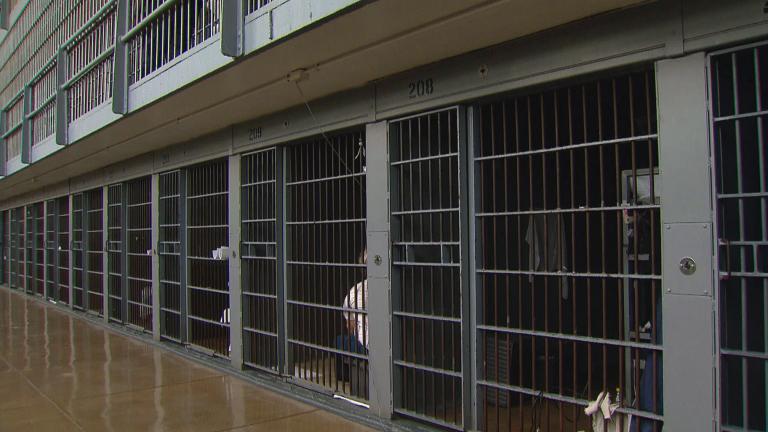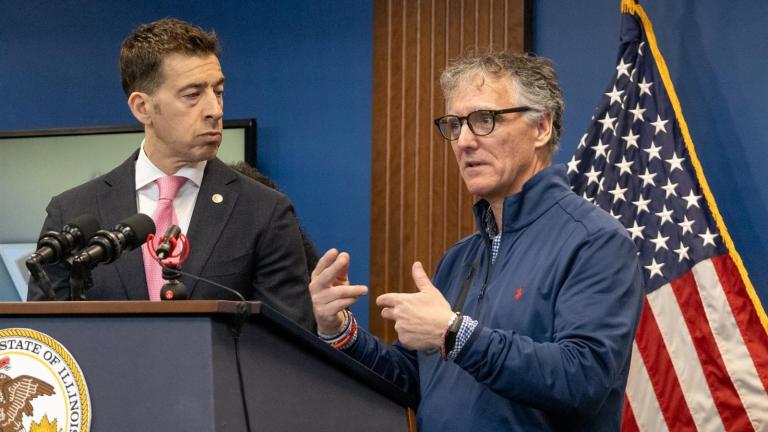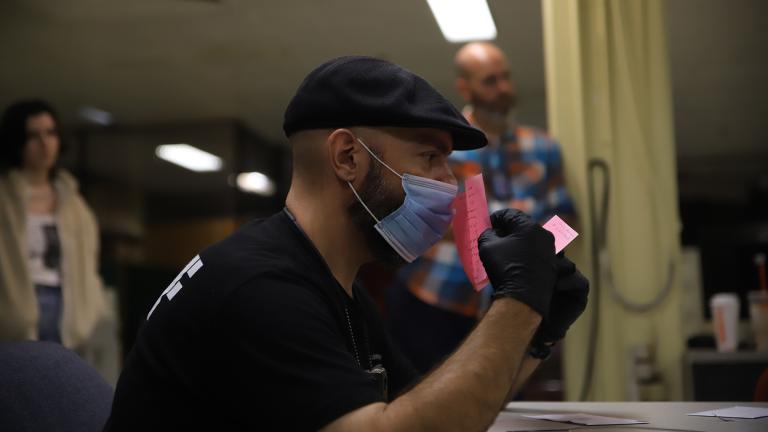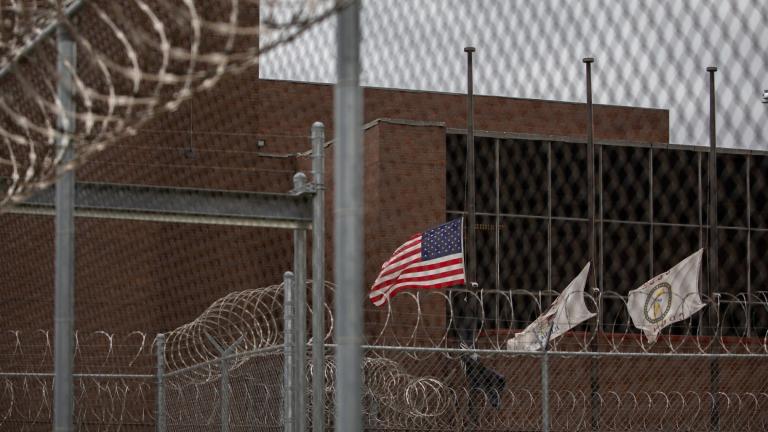Through the use of “aggressive intervention strategies” and widespread testing, the Cook County Sheriff’s Office was able to successfully mitigate the spread of COVID-19 inside the Cook County Jail, according to a new study from the Centers for Disease Control and Prevention.
Penned by members of the CDC as well as medical officials from Cook County Health, the Chicago Department of Public Health and the Sheriff’s Office itself, the report found that jail staff were able to limit the spread of the coronavirus through physical distancing, limiting movement and expanded testing.
“Early in the outbreak, increases in cases among staff and detained persons paralleled that in Chicago, Illinois,” the report states. “After implementation of interventions, cases declined in detained persons and staff, even as cases increased dramatically in Chicago.”
Within two months of the first confirmed COVID-19 case at the jail in March, nearly 1,000 detainees and jail staffers had been infected with the disease, and seven detainees, three correctional officers and one court deputy died after testing positive.
The report called this “one of the largest outbreaks of COVID-19 in a congregate setting described to date.” Since then, the number of positive cases at the jail have dropped off precipitously.
Cook County Sheriff Tom Dart on Wednesday said only 11 of the jail’s 4,831 detainees are currently infected with COVID-19, and eight or nine of those people tested positive before they were arrested.
“The impactfulness of what was done here cannot be underestimated,” he said during a press conference.
Dart has said his office began screening incoming detainees for flu-like symptoms in late January, while also setting up quarantine and isolation wards for those who did test positive for COVID-19. The sheriff said jail staff have given detainees soap, hand sanitizer and masks, while the Sheriff’s Office added 500 beds of isolation housing in an “inmate bootcamp” located away from the main jail campus to help relieve pressure on its Cermak Hospital.
Jail staff test all incoming detainees, as well as those who are both symptomatic and asymptomatic inside the jail.
In-person visitation was also halted for months, but has since resumed in an outdoor setting as the number of cases in the jail continues to decline.
The report states that the effective response to the jail’s COVID-19 outbreak “demonstrates the need for dynamic and aggressive application of intervention strategies.”
Dr. Connie Mennella, chair of correctional health for Cook County Health and one of the authors of the report, said it wasn’t necessarily any one of these measures that helped stem the spread of COVID-19, but rather a “layering” effect caused by each of them working in unison.
“We are not out of the woods and we will remain vigilant,” she said. “Understand that COVID still exists in the community, and as long as it exists in the community, it poses a threat to our environment. But we hope that we can help other congregant settings learn from what we did in the jail.”
Included with the report is a note which states it has not yet been peer reviewed. Thus the new medical research it outlined “has yet to be evaluated and … should not be used to guide clinical practice.”
During the pandemic, Dart’s office was sued in federal court by local activists seeking the release of older and medically vulnerable detainees. And in April, the New York Times dubbed the Cook County Jail the “largest-known source of coronavirus infections.”
Dart has called that claim “reckless,” saying the only reason his jail had higher numbers was because they began testing earlier than other correctional facilities.
“In spite of all the insanity going on, and in spite of frankly some of the reckless things that were being said in the media, we stuck with the science,” he said. “We stuck with science from day one, we stuck with science for testing, with isolating, with coming up with new places to house people, social distance people, mask people – we did all that.”
Contact Matt Masterson: @ByMattMasterson | [email protected] | (773) 509-5431
Note: This story was first published July 15, 2020. It has been updated following our interview with Cook County Sheriff Tom Dart on “Chicago Tonight.”








